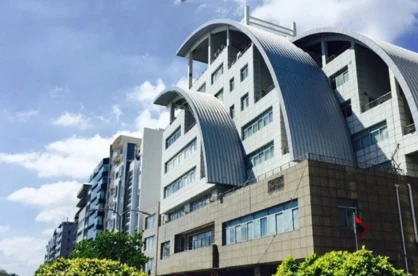Revitalizing the healthcare workforce
The government's proactive measures to address the shortage of healthcare workers signify a positive step towards enhancing the efficiency and accessibility of healthcare services.

The government's proactive measures to address the shortage of healthcare workers signify a positive step towards enhancing the efficiency and accessibility of healthcare services.

In recent years, the shortage of healthcare workers has been a pressing issue, leading to delays and challenges in accessing timely healthcare services. The strain on the healthcare system has been particularly evident during the COVID-19 pandemic, causing concerns for both the government and citizens alike. However, recent decisions taken by the Cabinet reflect a proactive approach to tackle this issue and ensure a more efficient and accessible healthcare system.
In a recent press conference, Principal Secretary to the President on Public Policy, Abdulla Nazim Ibrahim, announced the approval of a bill aimed at facilitating the return of nurses and other health workers who have been out of service due to various reasons. The decision, reached after extensive discussions based on a proposal submitted by the Health Ministry, indicates a concerted effort to address the persistent shortage of healthcare professionals.
Not only is this decision going to address the concerns that are often evident during a crisis, such as the COVID-19 pandemic, but this initiative also gives a chance for those who left the workforce due to various reasons to return back and work in a profession they love while also contributing to the society.
To expedite the reintegration of healthcare workers into the system, the Cabinet has decided to implement a special scheme. This scheme involves an accelerated recruitment process, allowing qualified individuals to rejoin the workforce promptly. The emphasis is on providing opportunities for those who express a willingness to resume their duties immediately, contributing to the alleviation of the ongoing workforce deficit.
Recognizing the diverse needs of healthcare professionals, the government has introduced flexible work arrangements. Individuals desiring to work fewer than eight hours a day will now have the option to do so, with salaries being adjusted based on their working hours. This move not only accommodates the personal preferences of healthcare workers but also ensures adherence to established civil service standards.
In a bid to harness the expertise of seasoned health workers, the government has introduced contract-based employment for individuals over the age of 55 or those who have retired. The criteria for selection include qualifications in terms of health, education, experience, skill, and the availability of positions in the administrative structure. This strategic approach aims to tap into a pool of experienced professionals who can contribute significantly to the healthcare sector.
Looking ahead, the government plans to conduct a comprehensive study on the recruitment of former professionals in other sectors, such as education. This forward-thinking initiative demonstrates a commitment to addressing not only the current healthcare worker shortage but also potential challenges in related sectors. The findings of these studies are expected to be presented to the Cabinet before the end of President Dr. Mohamed Muizzu's term.
The government's proactive measures to address the shortage of healthcare workers signify a positive step towards enhancing the efficiency and accessibility of healthcare services. By facilitating the return of experienced professionals and implementing flexible work arrangements, the authorities aim to build a resilient healthcare system capable of meeting the evolving needs of the population.
As these initiatives unfold, there is optimism that the healthcare sector will witness positive transformations, ultimately benefiting citizens and ensuring the provision of timely and quality healthcare services.



